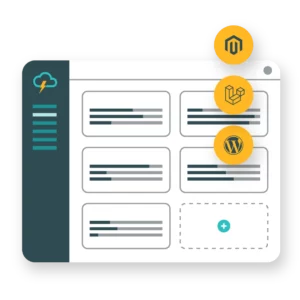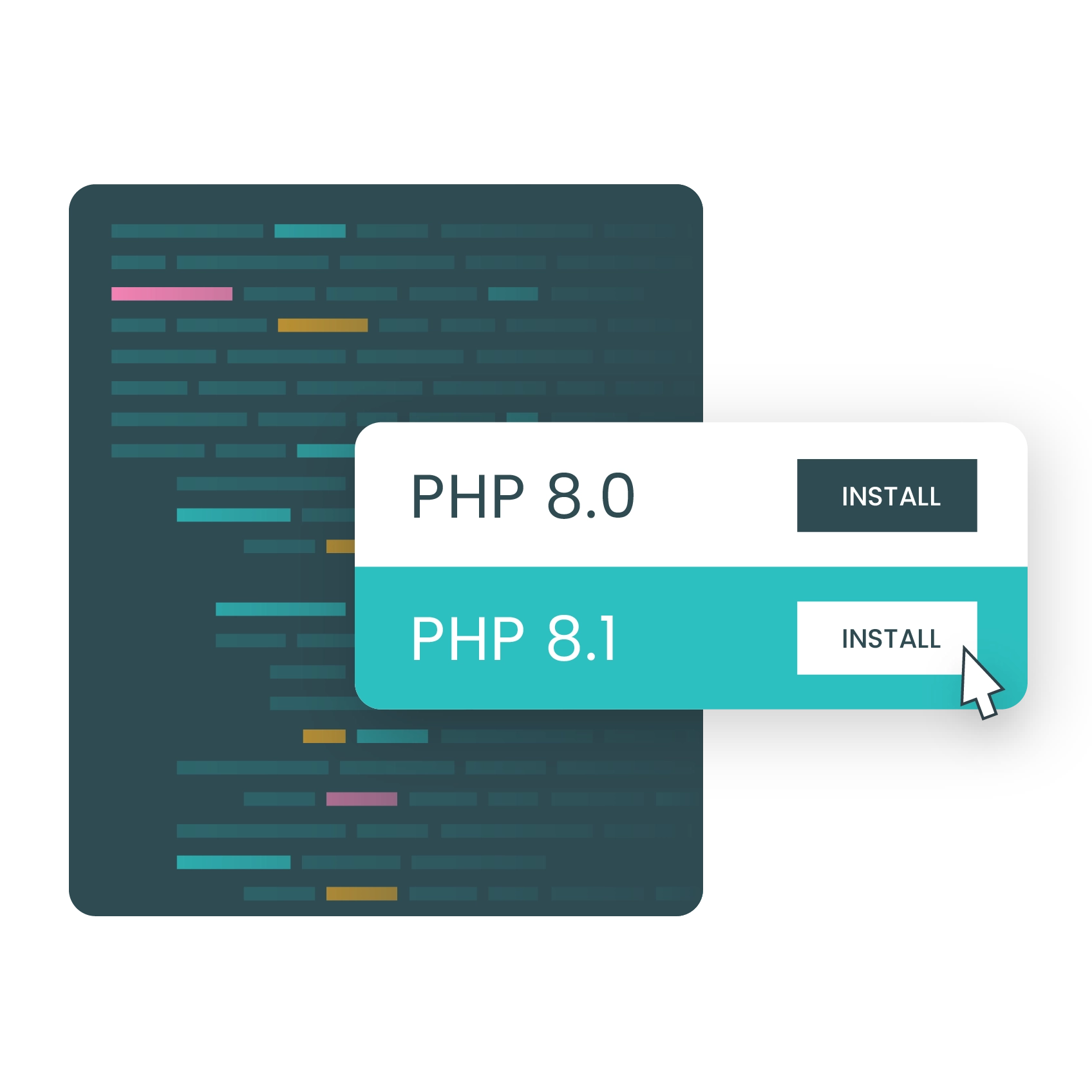It’s no exaggeration to say that WordPress is the engine driving the internet. The content management system (CMS) is the most widely used on the internet, and fundamental to thousands of the world’s biggest websites. Its flexibility is such that many sites aren’t even identifiable as running on WordPress until you get into the back end and see the familiar interface.
This popularity makes it essential that developers understand the workings of WordPress, and how to develop for and interact with it. One of the most frequent questions we hear is ‘is WordPress PHP based?’, and if not, what does make it tick?
Here’s our handy overview of the languages WordPress uses, and the important role these play in driving this popular and highly respected web publishing system. You can also find additional information about our hosting options, via our managed WordPress hosting solution.
What is WordPress?
WordPress is the most popular CMS on the internet today. Like any CMS, the primary role of WordPress is to provide a functional back end for publishing content to a website’s front end. Templates within WordPress provide editable fields, feeds, and module areas that content can be published to, with an intuitive WYSIWYG (what you see is what you get) editor and extensive media support, including automatic embedding for YouTube videos and tweets.
WordPress is known both for its user-friendly interface and its flexibility. The back end is both easy to navigate and feature-rich, with both granular settings for pages and posts, and broader site settings. Around 60,000 free and paid plugins are available to extend the CMS’ functionality, including Yoast SEO and WooCommerce, a widely-used e-commerce platform. Available since 2003, WordPress remains familiar despite changing with the times, and is at the core of many modern and beautiful websites.
Developed by the non-profit WordPress Foundation, WordPress is free and open source, giving developers complete freedom and control in terms of extending its functionality. Conceived as a blog publishing system, WordPress has expanded to natively support almost every kind of website, as well as multisite installations. All of these factors have led it to drive an estimated 43.2% of all websites.
Further services and reading:

One hosting platform for your agency.
Our platform was designed with your needs in mind, which means it’s easy to use, and time-saving too.What is PHP?
PHP is an extremely popular, open-source scripting language. Invented in 1993 as a way to create simple web applications for the creator’s personal home page, PHP became its own programming language almost by accident, growing alongside the rapid development of the internet. PHP is characterised by being simple to use but also extremely capable, with a wealth of advanced features for experienced developers.
PHP is run server-side rather than client-side. PHP pages consist of HTML alongside bits of embedded code that execute certain functions, with all of this being processed on the server before being sent to the user as plain HTML. This not only allows you to perform all sorts of complex and interesting tasks – with the result being embedded in a page – but also hides the bulk of your code from view in a browser.
PHP has wide compatibility with PHP hosting, operating systems, servers, browsers, and databases, and can encompass everything from CSS, to images, to other scripting languages (e.g. JavaScript). Its ability to perform and mask almost any required action on a website means that PHP continues to be popular today, as does the wealth of support it boasts, with a major new update every year or so.
Is WordPress PHP based?
In a word, yes. WordPress core (the main files needed for WordPress to function) and most of its themes and plugins are all written in PHP. While WordPress also makes use of HTML, CSS, and JavaScript, PHP is the dominant programming language in WordPress. WordPress also uses MySQL to store and retrieve information, including posts, pages, comments, users, and tags.
The heavy use of PHP makes sense for WordPress, which has both an extremely dynamic front and back end. Most of the actions you make in the back end are done in PHP, from managing pages, to submitting posts, to configuring the positions of your widgets. These tasks are performed by PHP scripts and logged in MySQL databases, which PHP scripts then call on to retrieve that information for both ends, and display things the way you’ve configured them.
In short, both the way your website looks and the interfaces you use to manage and customise your WordPress site all rely on PHP. The PHP scripts use dynamic data that is then rendered as an HTML page, controlling exactly what is being rendered, as well as aspects such as the permalink or categories assigned to a post. What you see on the site isn’t PHP per se, but rather the result of PHP acting silently in the background.
The value of PHP in WordPress
PHP is integral to WordPress, but that doesn’t mean that WordPress uses PHP well. Many people have argued that the implementation of PHP in WordPress is somewhat inefficient and outdated, with limited use of valuable new features within the language. This goes doubly for WordPress plugins, which can go months or even years without an update, making them inefficient and prone to security issues.
There’s nothing stopping developers from building great WordPress sites with good practices, strong plugin architectures, and object-oriented programming. But some of the issues in WordPress core encourage developers to create plugins and sites that replicate them, rather than addressing them.
The popularity of WordPress also means that there are more low-quality, entry-level developers for WordPress than with niche, specialised CMSs, which can give it and PHP a bad name.
The important thing to note is that there’s nothing fundamentally wrong with PHP, or indeed with WordPress. Both have their quirks, and some developers dislike the latter, but both are powerful platforms for quick, reactive, good-looking websites.
Building one of these sites means using custom code and limited plugins to build on top of the foundations WordPress provides you – and you can’t do this without a fundamental understanding of PHP.
Moreover, a good grasp on PHP has other applications. Two competing CMSs – Joomla and Drupal – use PHP, as does the increasingly popular web app framework Laravel. Any PHP work you do in WordPress will set you up to work on different platforms, which some people actually find easier to develop for.
If you can create a great WordPress site or plugin in PHP, you should have the capability to transition to other CMSs, broadening your portfolio.
PHP is at the literal core of WordPress, and drives the intuitive back-end UI and glossy front ends that users have become accustomed to. However, the long legacy of WordPress’ development and its popularity means that its implementation of PHP isn’t always as clean and comprehensive as it could be.
WordPress’ core can be slow to integrate new features of PHP, and its idiosyncrasies often make their way into plugins, which can lead to bad coding practices.
Perhaps the most important advice we can offer with PHP in WordPress is to rely on your own skill in the language, using WordPress as a platform for your own work. By limiting the number of plugins you use, creating your own custom PHP, and preventing sites from becoming too bloated, you can harness the benefits of WordPress from a user-familiarity perspective, and develop a responsive and beautiful website.
Further reading: Questions to ask a WordPress hosting provider

